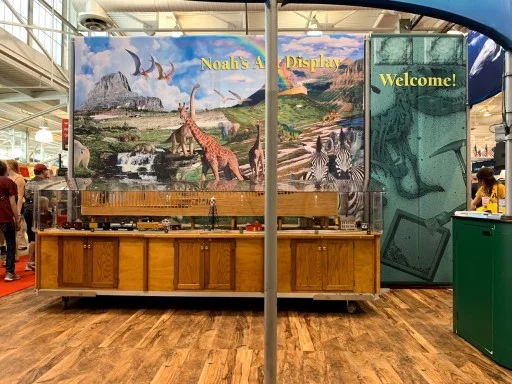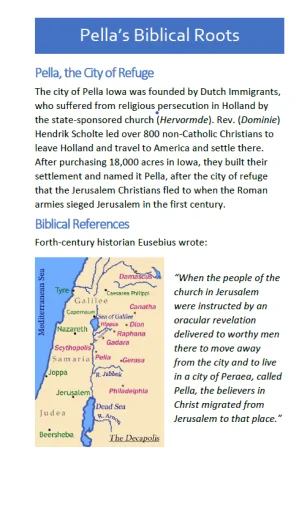Me: You mentioned earlier that you work for Answers in Genesis which is a big apologetics ministry. Can you explain your perspective on apologetics and evangelism, how they relate to each other? Let’s explore that a little.
Tony: Apologetics is so very necessary for the church today. I think we’ve lost throughout the generations a lot of our apologetic skills and abilities inside the church. Apologetics, or apologia, is basically the Greek word for answer, or to give a reason like in 1 Peter 3:15. It says, “Be ready to give an answer to anyone who asks you for a reason for the hope that lies within you yet with gentleness and reverence.” It’s not about apologizing to people because you’re white, or because you’re a Christian. It’s about giving an answer and being ready with a defense of the faith.
We haven’t taught them as much about why they should believe that’s where apologetics comes in as the reasons why we believe what we believe. Answers in Genesis is the foremost apologetics ministry in the world and as such, our ministry is primarily focused on the church. Our first focus is really the Christian church and secondarily, it’s the lost. That’s fine because there needs to be that kind of focus. I’m so thankful that whenever we open up the Creation Museum, and now much more with the Ark Encounter, we get a lot of unbelievers to those attractions. I’m so thankful every time I think of it. I’m thankful to the Lord, that we have these gospel proclaiming exhibits. You might think of them as booths. Every single day there’s a gospel booth, so to speak, at the Ark Encounter.
Me: Just a really large booth!
Tony: Right. You and I, we get to do gospel booth ministry occasionally, once every few weeks. I’m telling you, every day, God is proclaiming the gospel through our attraction. I was really thankful for that. At the same time, I think that when it comes to evangelism and individual Christians sharing their faith, proclaiming the truth of Jesus Christ and Him crucified and resurrected, sometimes Christians can go overboard on apologetics. I already said that for the most part I think most Christians need to firm up their apologetics but sometimes you have a smaller minority of Christians who really have done that firming up. They are girding themselves up in the knowledge of the most holy faith and they know the answers and they sometimes get stuck there. They get stuck, I won’t even say when they’re sharing the gospel, but when they get into a conversation with an unbeliever and it becomes an argumentative atmosphere. I try to tell people, especially those who are really good at apologetics, “It’s great, and I’m glad that you have those answers and they’re at your fingertips. We should all be like that. At the same time, remember that Romans 1:16-17 says it’s the gospel that is the power of God for salvation.” The power of God for salvation is not apologetics. The power of God for salvation is not your lifestyle, your holy lifestyle. We should we have a holy lifestyle. Should we have good apologetics? Yes. But those aren’t the power of God for salvation. It’s the content of the gospel, the person and work of Jesus Christ. That is the power of God, He is the power of God for salvation. I try to encourage my friends that are strong and apologetics to make sure that you’re always bringing it back to the gospel because you can go on rabbit trails for hours with unbelievers. I’ve seen it happen in my own life, I’ve seen it happen in other people’s lives. There is a sort of skill or experience where you start to learn how to bring the conversation back to the gospel from these various rabbit trails.
Me: Yes, I remember watching a video by Bill Jack some time ago. It stood out to me that he illustrated this and said, “Don’t use apologetics like a sledgehammer. We’re not here to destroy the other person.”
Tony: We are not here to win an argument we are there to, by God’s grace, win the person. We’re there to win the soul as Proverb says, “He who wins souls is wise.”
Part 1: Profile
Part 2: Booth Ministry
Part 4: Using Doctrines
Part 5: Handling Conversations
Part 6: Resources
 6 Reasons to Share the Gospel: God
6 Reasons to Share the Gospel: God
 Iowa State Fair Gospel Outreach
Iowa State Fair Gospel Outreach
 Tulip: The Beauty of God’s Grace
Tulip: The Beauty of God’s Grace
 Pella’s Biblical Roots Pamphlet
Pella’s Biblical Roots Pamphlet